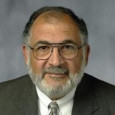The intersection of nano-info-bio-opto technologies into integrated systems will impact many application areas, including medical research and diagnostic systems. Small, low-cost, low-power medical devices are essential for improving health care delivery, screening multiple medical diseases at the point-of-care, and detecting infectious pathogens associated with pandemic illnesses in global health applications.
Biosensors and biochips provide critical diagnostic devices that employ the powerful molecular recognition capability of bioreceptors such as antibodies, DNA, enzymes and cellular components of living systems. The intersection of biological "wet" materials and traditional photonic "hard" materials through heterogeneous optoelectronic integration is an emerging area with applications including sensing.
These technologies will build upon multi-material, ultra mixed signal embedded optoelectronic functionality (sensing, interconnection) in high-density interconnection substrates, 3-D electrical and optical integration of Si circuits for massively parallel processing and interconnect, and fiber optic interconnect, and will lead to the development of a host of photonics technology with wide-ranging applications in telecommunications, environmental sensing, medical diagnostics and global health applications.
We will explore the capabilities of Digital Biochemistry, which combines nanometer-scale devices and materials, such as metal and carbon nanoparticles, with molecular-recognition systems and optical, mechanical or electronic transduction platforms to produce high-throughput, high sensitivity and high temporal, spatial and spectral resolution biochemical sensors. At the physician's office, integrated complementary metal oxide semiconductor (CMOS) biochip systems offer several advantages in small size, high performance, rapid analysis capabilities, and low cost because of their integrated electro-optics sensing microchip.





